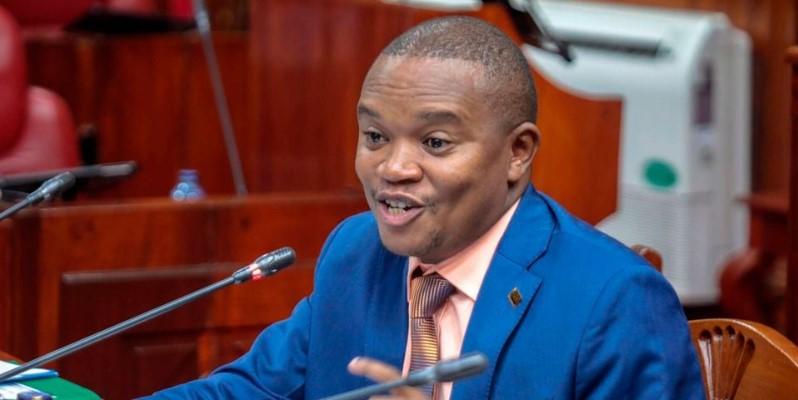UDA MP Kuria Kimani Admits Error in Proposed Housing Levy for Kenyans Without Salary
Molo MP Kuria Kimani, the head of the National Assembly Finance Committee, has acknowledged the shortcomings of the Housing Bill that aims to support President William Ruto’s Affordable Housing project.
In an interview on Citizen TV, Kimani acknowledged that the law lacked clarity and did not specify the particular type of income from unemployed Kenyans that the levy aimed to address.
He additionally agreed with the verdict of the Court of Appeal, asserting that excluding those who are not on a salary from the levy would constitute discrimination.
“As a legislator, I respect the interpretive arm of Government. (According to the court ruling on levy) the housing levy was discriminatory because it was only targeting the employed and not the unemployed,” he explained.
“The Housing Levy lacked a legislative framework because every levy in this country that is collected actually has an act of Parliament that backs it. In my personal view, if the contribution has to be non-discriminatory, the fund has to be contributed by those who are salaried and those who are not.”
He contended that, while the bill explicitly outlined a 1.5 percent deduction for salaried individuals, it did not encompass self-employed individuals or those with alternative income sources.
According to Section 4 of the Bill, “The levy shall be at the rate of 1.5 percent of the gross salary of an employee or the gross income of a person received or accrued that is not subject to the (housing levy deducted from the salaried)”
Kuria clarified that the ongoing process of public participation is intended to address the anomaly by providing clarification on the type of income included.
ALSO READ:
- “Two Groups, One Agenda”: Gachagua Accuses Raila of Secret Political Deals
- Exclusive: Ida Odinga’s 75th Birthday Party in Karen (Photos)
- FKF President Discloses Exact Amount Paid to Harambee Stars Players
- Gachagua’s Ally Senator John Methu Admits Ruto Might Win 2027 Elections
- Maraga Explains Why He Hasn’t Campaigned in Kisii Despite 2027 Bid
“There is a cure to make sure that the levy is not just a contribution by those who are salaried but also the non-employed. The problem with this law is that when we talk about gross income, is it rental income? Is it turnover? Is it self-employed income? What kind of income is it? Salary is defined but the other income is not,” he added.
“Every income for all tax purposes has to be specific. You either talk about salary income, rental income, or gross turnover as per the Corporate Tax Act. We agree that that is missing and that is what these public hearings are about and what this joint committee hopes to cure.”
The suggestion elicited apprehensions among various groups of participants, including the Real Estate Development and Finance Association (REDFA) Kenya. This organization conveyed to the committee that the government ought to consider alternative strategies for development.
“The government should refrain from directly engaging in unit construction to mitigate potential citizen losses and avoid potential financial risks through government-led projects,” the group argued.
The Institute of Certified Public Accountants of Kenya (ICPAK) contended that the suggested introduction of a Housing Levy on individual income constituted double taxation and contradicted international standards. They recommended that Parliament allocate funds for housing independently rather than through payroll deductions.
Last Friday, the Court of Appeal declared the deductions unconstitutional and directed the state to cease implementing them.
UDA MP Kuria Kimani Admits Error in Proposed Housing Levy for Kenyans Without Salary
